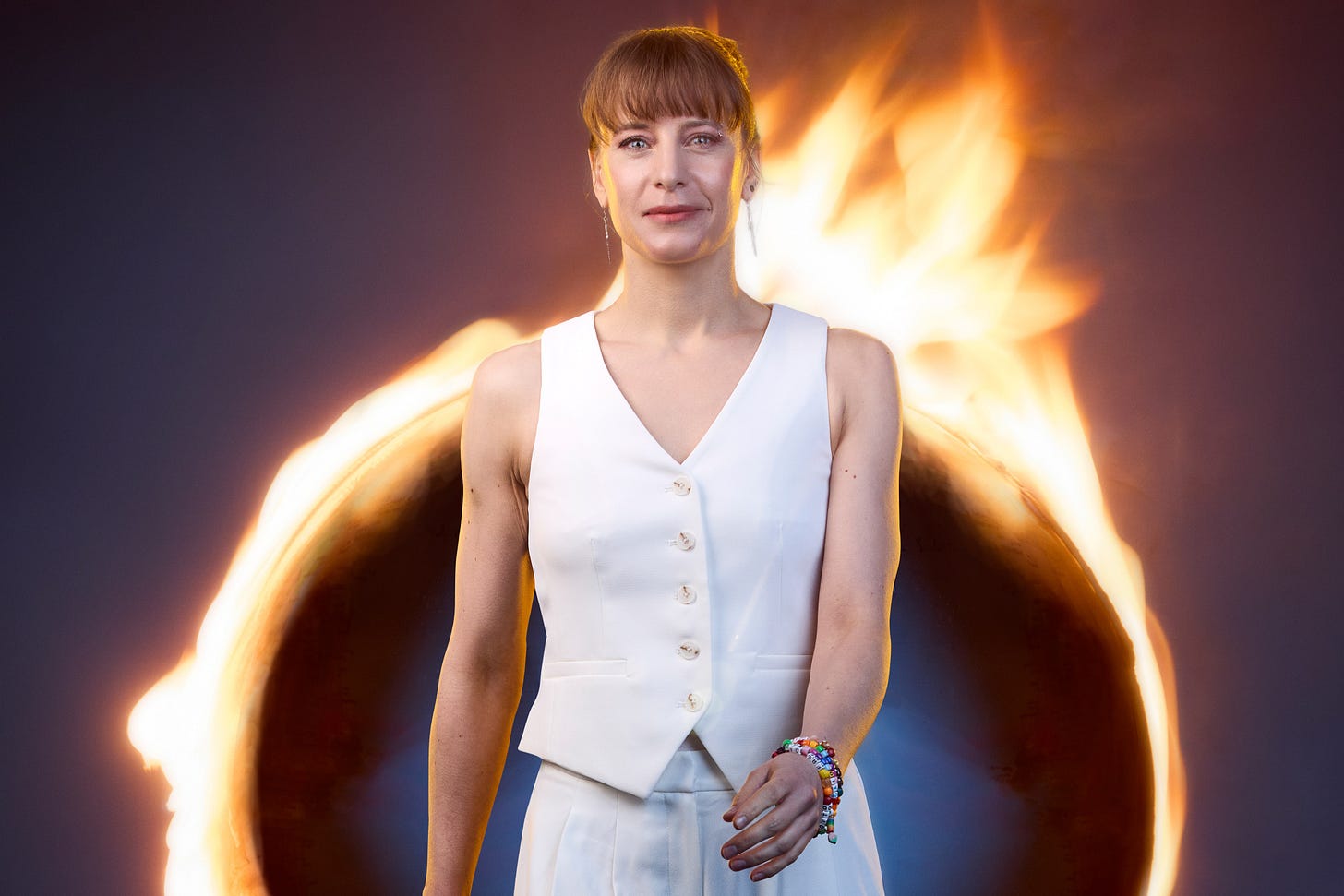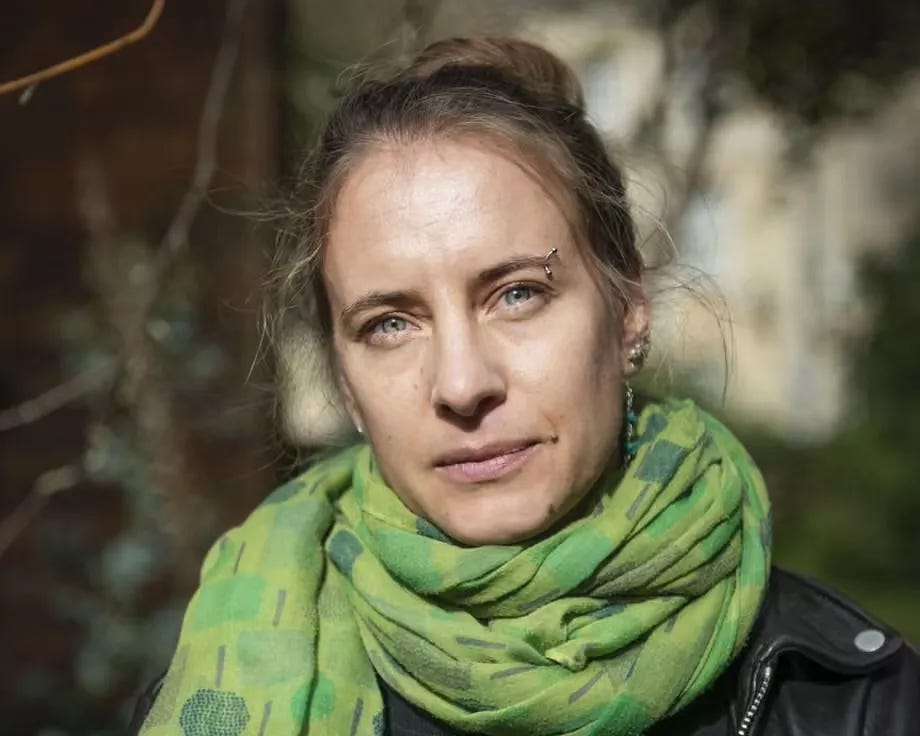IPCC Likely to Start Blaming Humans For Weather as Friederike Otto Takes Key Role
The foxes are now firmly in charge of the chicken coop
Last December the Daily Sceptic published an article reporting that the Intergovernmental Panel on Climate Change (IPCC) could be preparing to start blaming humans for individual bad weather events. Straws-in-the-wind stuff, based on an IPCC press release claiming a century of burning hydrocarbons had resulted in “more frequent and intense extreme weather events”. To date, the IPCC has failed to detect that humans using hydrocarbons have led to worse bad weather on the simple scientific ground that it is impossible, with current data sources, to remove the overwhelming role of natural variation. Our story was prescient. It’s all change at the IPCC, with the appointment of Attribution Queen Friederike Otto and a troop of fellow attributionists to take charge of writing a new chapter on extreme weather for its forthcoming seventh climate science assessment report. With the foxes now in charge of the chicken coop, political order can be restored, with the IPCC science more closely aligned with current Net Zero political requirements.
Dr Otto, who runs the Green Blob-funded World Weather Attribution (WWA) operation out of Imperial College, has been appointed the co-leader of the extreme weather chapter. “It will be a lot of work, but it also gives a lot of opportunity to shape the structure and focus of the chapter”, she notes. WWA paymasters who include the Grantham, European Climate and Bezos Earth foundations will no doubt be delighted with this news. Helping her shape the narrative going forward will be a number of writers who are all in on the single event attribution game. The science writer Roger Pielke Jr notes that the team is “stacked” with people who focus on extreme event attribution (EEA) – “far out of proportion to their presence in the field”. Few of the authors, if any, he adds, have expertise in the IPCC’s conventional framework for detection and attribution (D&A), and some have no publications on either detection or attribution. He points out that nine out of 20 of the authors focus their research on EEA, including two of the three coordinating leads.
One-off weather attribution is a pseudoscience based mostly on the flimsy findings of computer models. Two imaginary atmospheres with different levels of carbon dioxide are compared, and, hey presto, claims are made that a weather event is x times more likely to be caused by humans.
Complete with a suitable large multiple, the results are distributed to ‘join-the-dots’ merchants such as Jim Dale, as well as mainstream media climate desks. Worldwide publicity is given to ‘science’ findings that obviously fail the Popperian principle in that they cannot be tested and falsified. The non-peer-reviewed information is pushed out quickly in a press release, with the disaster fresh in the media minds. Climate fear levels in the general population are kept nicely topped up – job done. Climate ‘deniers’ can be dismissed with a head-in-the-hands sigh and a “can’t you even see the evidence outside your own window?” Of course, the entire unquestioning media meltdown is based on the false notion that computer models produce ‘evidence’, when in reality they just supply opinions.
In 2019, the former BBC Today editor Sarah Sands wrote a foreword for a WWA journalist guide to reporting extreme weather. She recalled the time when the UK politician Nigel Lawson managed to slip into a BBC broadcast that there had been no increase in extreme weather. “I wish we had this guide for journalists to help us mount a more effective challenge to his claim,” she gushed. These days, she enthused, attribution studies have given us significant insight into the horsemen of the climate apocalypse.
In the past, the IPCC has failed to detect and attribute most extreme weather to human involvement, and it did not expect to do so for the rest of the century. It is becoming increasingly obvious that computer models are poor at replicating the complex atmosphere and offer little guidance for future climate projections. Detecting changes in the climate requires many decades of observation. The idea that one event can shortcut an understanding of a long-term trend, when there is no way of knowing if it is a statistical outlier, is for the birds. Collecting one-offs from a number of different weather types and claiming that humans control the weather would just be silly if it wasn’t designed to induce mental anguish and screw oil and gas firms in court.
With many of the poster scares of climate collapse having to be retired – even melting Arctic sea ice has gone on strike for 20 years – the desperation of activists is getting noticeably worse. One of the last throws of the dice is running bad weather scares. Net Zero is dead in the United States, and a recent official government report stated that computer models offered “little guidance” on how the climate responds to higher CO₂ levels. It also noted that most extreme weather events are not increasing, while weather attribution claims are challenged by natural climate variation, along with an admission that they were originally designed with ‘lawfare’ in mind.
WWA was set up in 2014 by Otto and Dr Geert Jan van Oldenborgh, with Green Blob-funded Climate Central providing support and help with securing funding. These days, the operation notes that its methods have been developed over time and “peer reviewed in dedicated methods publications”. A link to the claimed peer review is helpfully provided on its website, and this brings up a paper titled ‘Pathways and Pitfalls in Extreme Event Attribution.’ Interestingly, the first peer reviewer is Dr Geert Jan van Oldenborgh, while the fifth is Dr Friederike Otto.
In 2022, a group of four Italian scientists led by Professor Gianluca Alimonti published a paper in Nature based on data used by the IPCC that concluded there had been little change in extreme weather events. Such findings and data are easy to find, although mainstream media is mostly absent from the search. On the basis of their factual findings, the Italians suggested there was not a climate crisis. All hell subsequently broke loose, and an alliance of activists, journalists and scientists managed to get the paper retracted a year later. One of those activists was Otto who said the authors were “of course” not writing their paper in good faith. “If the journal cares about science they should withdraw it loudly and publicly, saying that it should never have been published”, she added. At the time of the infamous affair, Pielke observed: “The abuse of the peer-reviewed process documented here is remarkable and stands as a warning that climate science is as deeply politicised as ever with scientists willing to exert influence on the publication process both out in the open and behind the scenes”.
Chris Morrison is the Daily Sceptic’s Environment Editor. Follow him on X.





It’s worth noting that this is utterly meaningless as the world’s biggest GHG emitters – e.g. China, the US, India, Russia, Indonesia, Iran and Saudi Arabia – aren’t going to be even slightly influenced by Otto’s views. Re the UK, it may be a small consolation to know that our net zero policy would still be absurd, dangerous and pointless even if her views were in fact valid.
I suspect that the Net Zero hysteria will soon become a victim of the same citizen push back as open border activists experienced. As the political pendulum swings back towards the merits of nationalism over globalisation, the global elites (Bezos et al) will find their self-serving propaganda harder to land.